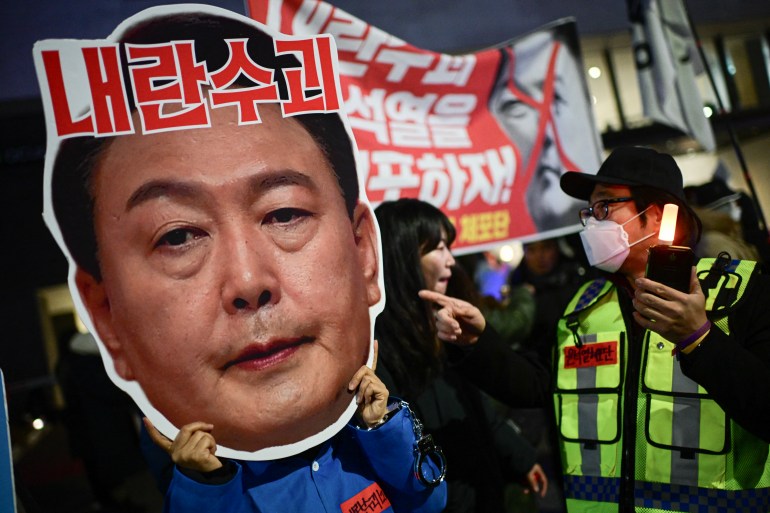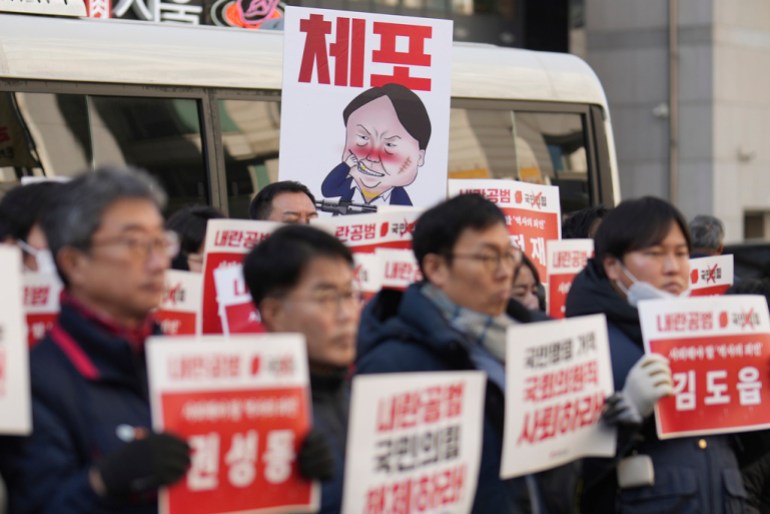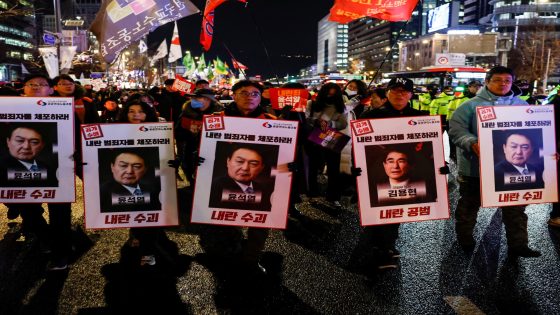The governing party is also discussing Yoon’s potential resignation as early as February and holding a snap election in April or May.
South Korea’s opposition-controlled parliament has passed a bill that seeks to appoint a special counsel to investigate President Yoon Suk-yeol over failed martial law as the governing party discussed his potential resignation in the coming months.
The bill, passed on Tuesday, requests the appointment of a special prosecutor to “determine the truth about the internal rebellion through the unconstitutional declaration of martial law”, according to the Yonhap news agency.
At least 210 lawmakers voted in favour and 63 against, while 14 members abstained out of 287 who attended the session.
The bill came after Yoon survived the first impeachment motion last week when the 300-seat parliament fell short of a quorum of 200 lawmakers.
A widespread investigation was launched into the Yoon administration after he imposed martial law, only to be forced into reversing that decision by the country’s parliament just hours later.

The bill also calls for investigating other officials, including former Defence Minister Kim Yong-hyun and Army Chief of Staff General Park An-su, Yonhap reported.
The Seoul Central District Court said it was reviewing a request from prosecutors for a warrant to arrest Kim, who has been accused of recommending martial law to Yoon and sending troops to the National Assembly to block lawmakers from voting on it.
In a statement later on Tuesday, the former defence minister said he “deeply apologises for causing significant anxiety and inconvenience”, adding that all responsibility for the imposition of martial law rests solely with him.
South Korean authorities have also banned more top officials from leaving the country a day after Yoon was hit with a travel ban.
On Tuesday, Cho Ji-ho, commissioner general of the Korean National Police Agency, and two other top police officials became the latest to be barred from foreign travel, the AFP news agency reported.
Yoon to resign?
Meanwhile, the embattled governing party said it was discussing Yoon’s potential resignation as early as February, and holding a snap election in April or May.
Lee Yang-soo, who chairs a People Power Party task force constituted on Monday to map out Yoon’s eventual and “orderly” departure, said his team proposed the idea of having Yoon resign in February or March and holding an election two months later.
South Korea’s constitution requires an election within 60 days of the president’s departure. Yoon’s five-year term ends in May 2027.
“We’ve not yet reached a conclusion partywide and will have another meeting with all our members of parliament in the afternoon to discuss that plan,” Lee told reporters.

Budget passed
Tuesday also saw parliament passing a budget bill for 2025 that was slashed from the government’s proposal and triggered the short-lived martial law decree.
The 300-member parliament voted 183-94 to pass a 673.3 trillion won ($470.6bn) budget for 2025, which was cut by the Democratic Party from the government’s proposed 677.4 trillion won ($473.5bn) without reaching an agreement with the PPP and the government.
It was the first time the parliament passed a budget trimmed down without consent from government ministries or between rival parties.
President Yoon had cited opposition obstructionism over government budgets as one justification for his martial law decree.





